'Brighton is in my top three places to visit': In Conversation With Caroline Calloway
What if we told you she's a mastermind? Caroline Calloway on going viral, being the author of her own story, and what comes next.
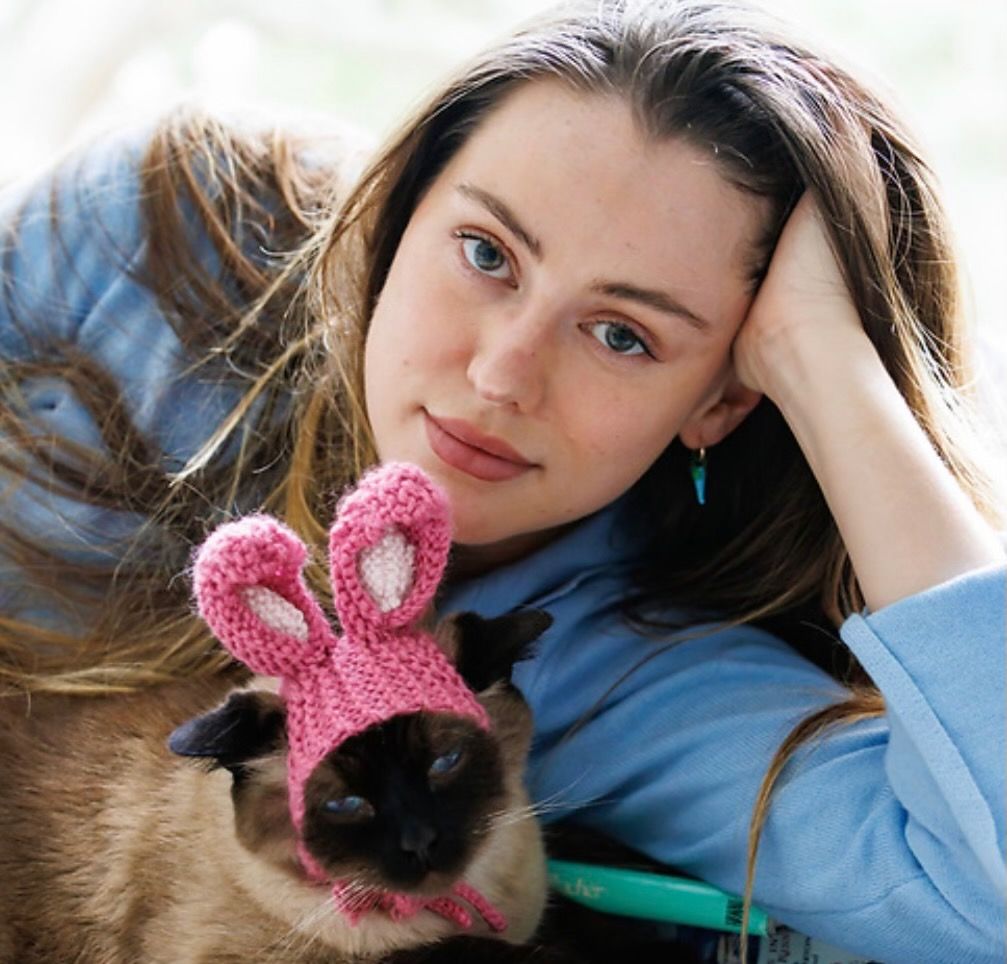
Editor's note: We know this isn't strictly within our usual remit, however when one gets the chance to interview Caroline Calloway, the passion project needs a place somewhere. She does, at least, mention our lovely city. Back to our regular content next week!
The day I finally meet with Caroline Calloway, after a couple of weeks of back and forth, she’s in the middle of being miked up for a documentary she’s filming. "But don’t worry," she assures me, "It’s mayhem over here, but my next call isn’t until 12.” She immediately locks on to my nails (painted turquoise and decorated with highland cows) before showing off her cat, Matisse’s, hat. It’s a crocheted Valkyrie hat complete with horns and a small breastplate.
If you’ve never heard of Caroline Calloway before, you’re probably very confused right now. Let me backtrack. Back in 2012, when Instagram still didn’t have a messaging function and all people posted was latte art with the valencia or mayfair filters, Caroline joined the platform, bought 40,000 followers, and began posting beautiful photos with long, gossipy captions. She later bought ads from book fandom accounts, including Harry Potter and The Hunger Games, (“I knew I wanted not just followers, but readers. And not just readers, but readers that were pre-disposed to become obsessed with what they read”) for the bargain price of $50 for 10 ads, and with that, she was catapulted into the mainstream.
After multiple rejections, and a forged transcript, she got into Cambridge in 2013, and continued to document her life via Instagram in a very dreamlike, idealised way—perhaps enhanced by the fact that she was sharing the details of the parties, balls, dates and relationships at least a year after they’d happened. She ended up landing a $500,000 book deal in 2016 for a memoir called And We Were Like/School Girl (depending on who you ask), but later withdrew from the contract because it wasn’t the story she wanted to write–"The worst things that would happen to me in the book were breakups and bad hair days".
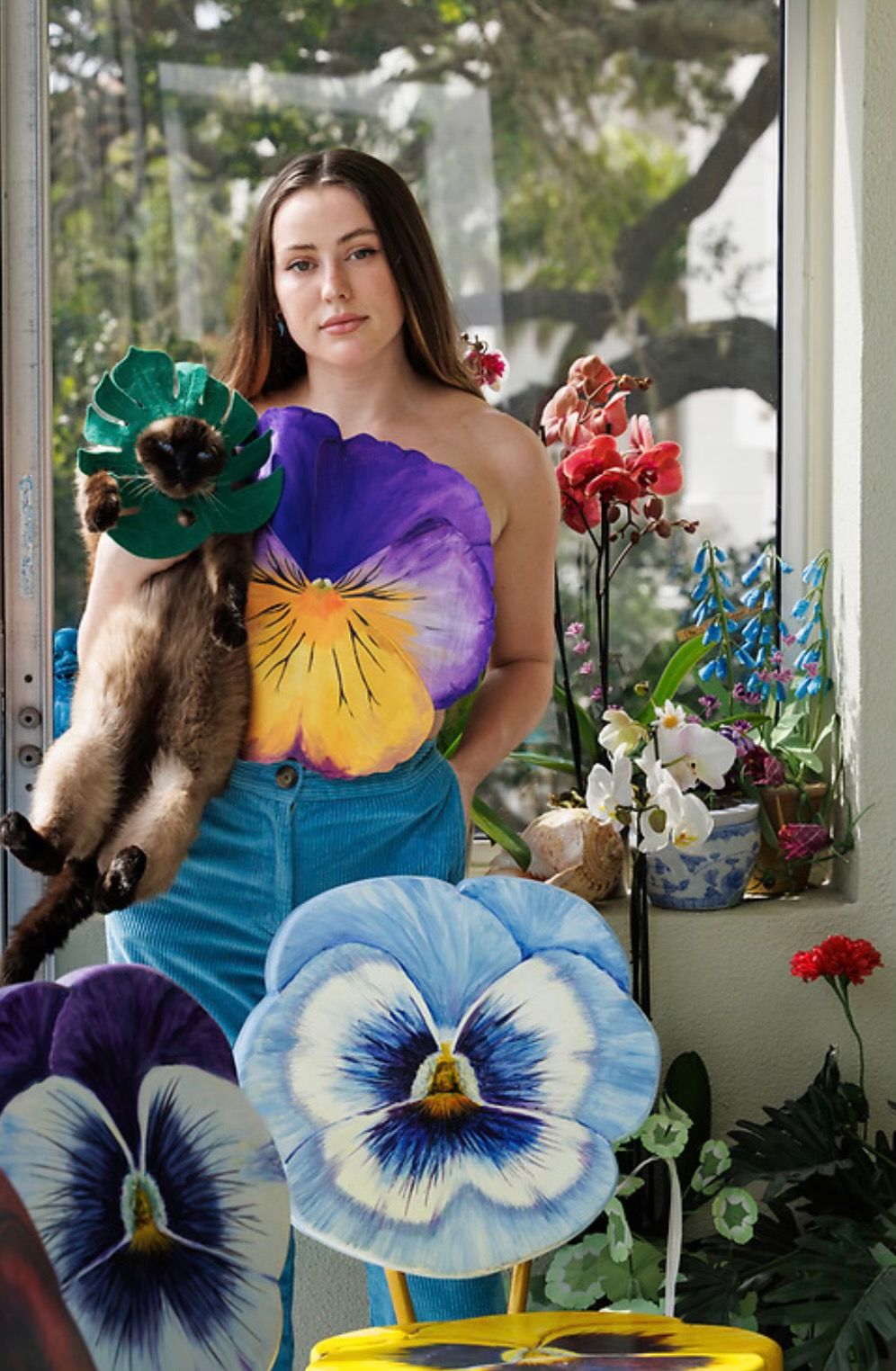
What follows is a series of events that result in her being branded a scammer: her infamous Creativity Workshop Tour in 2018 (we reminisced about the chaotic delivery of a pallet of mason jars to her studio flat); a scathing essay published by her former NYU classmate Natalie Beach, two days before she found out about the death of her father in 2019, which revealed Beach had ghostwritten pre-Cambridge Instagram captions for her and collaborated on the And We Were Like book proposal; and painting the hardwood floors of her West Village studio with white emulsion paint, most egregiously painting around piles of clothes on the floor instead of moving them. The internet felt strongly that these things were criminal, villainous, but I contest that: before the press found out, reviews of the creativity workshops were positive; ghostwriters are common, and Beach was hired to help write the captions and book proposal. If anything, it's worse that she found the lowest-rated doctor online for Adderall, as, this whole time, she was in the throes of an addiction to Adderall, an amphetamine used to manage symptoms of ADHD, which she would later treat with an AA-informed recovery program.
When I went viral as a scammer in the spring, I’d apologized. I tried to treat the Internet’s anger as I would a dear friend’s. I apologized. I listened. I tried to see the Internet’s side of things even though I fundamentally disagreed. Apologized some more. All that brought me was agony. Never again. Not this fucking time.
Right. Now, you might be thinking, you’re all caught up? Not at all. Flash forward to December 2019, when Caroline announces that her memoir, Scammer, would be released spring 2020, self-published under Dead Dad Press. However, no books materialised until three years later, when she sent out galleys to reporters the week of June 12th 2023. In that time, she had paid her book advance back via OnlyFans, shared the details of her recovery from Adderall, and started selling a facial oil called Snake Oil:
After I got out of my Adderall addiction, my first priority should have been like staying sober but unfortunately my first priority was the alarming realisation that I looked like the goddamn Crypt Keeper after not sleeping for years. I also started sleeping more and I don't wanna downplay the importance of that fact in tandem with the oil, but the oil really helped.
Okay. Now you’re up to date.
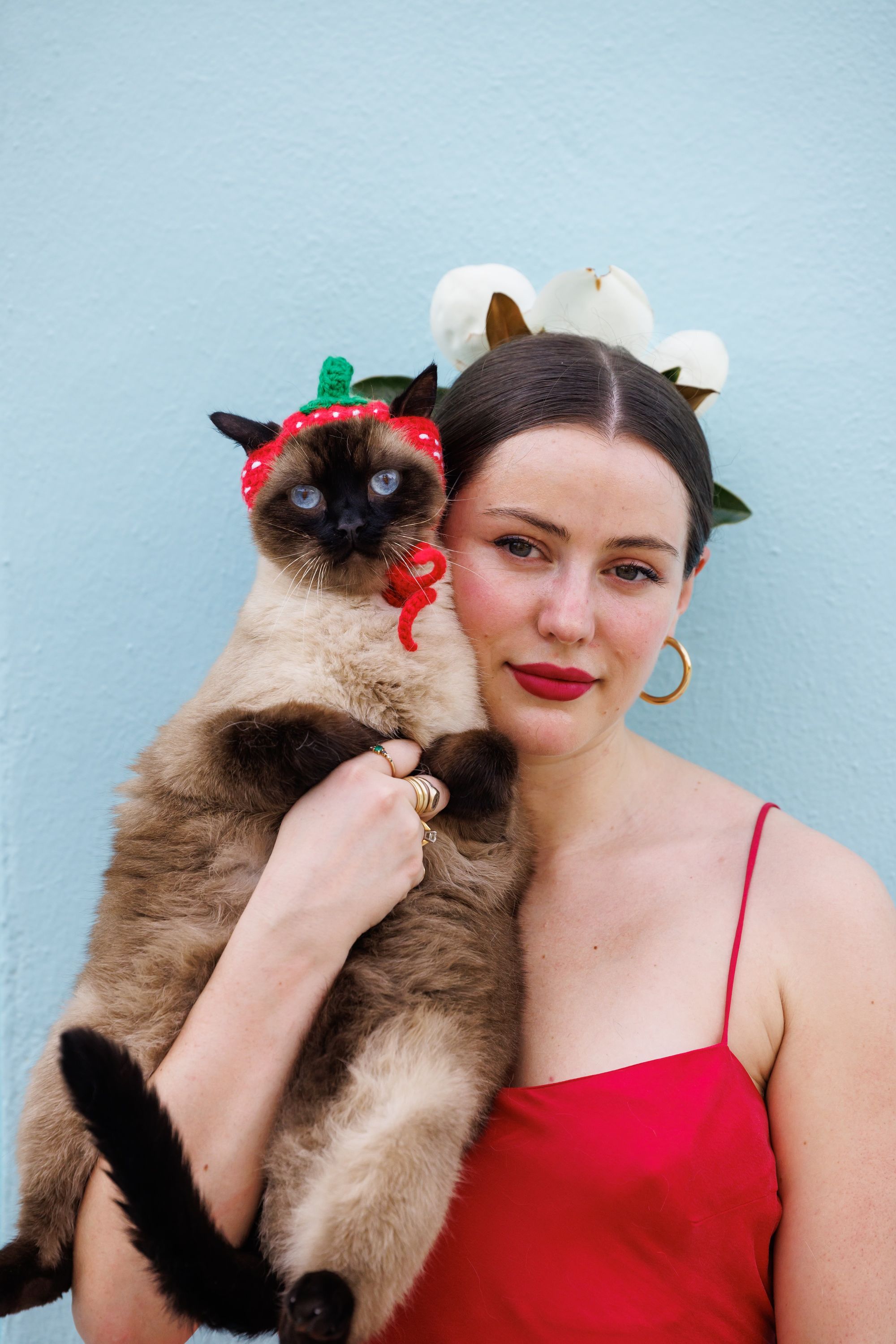
I struggle not to relate to a lot of what Caroline says and writes: not so much in her experiences at fancy balls with posh boys (“Every day it seemed a different aristocratic KK boy would dump out a pile of weed onto some mahogany desk that his grandfather had salvaged from a fucking Spanish shipwreck or something and ask his friend in the plumiest trill, “Bro, shall or shan’t we roll another J?””) but more in her emotional, introspective confessions that sneak in just before the chapter ends:
Some sunlight of the mind seeped in. I realized: I’ve been happy before and I’ll be happy again! Maybe it was the SSRI’s or the cocaine or both, but I thought, This bad chapter wasn’t the end of all good things that would ever happen to me!
As this is, after all, a review of her book, it may seem inappropriate for me to talk about how I personally relate to what she writes but, to me, this has always been at the core of her success: whatever she writes, however wildly different her life may be to yours, feels relatable–at least, if you've ever been a teenage girl it does. And when you talk to her, she makes you feel less like journalist and interviewee, but just Two Good Friends, FaceTiming and catching up on their days. We discuss the Taylor Swift Eras Tour, ("I felt like a medieval peasant seeing a Gothic Cathedral for the first time"), and our various experiences of going viral; she shows me the scars on her knee from her double patellectomy (she was the youngest person to have had one when she was eight). Talking to Caroline Calloway feels less like interrogating the calculated con-woman traditional media has painted her as, and more like chatting to an exuberant, talkative, 30-something American woman. Because that's what she is.
Her "day book"—a Callowayism, 'coined for writing that’s intended to be finished the same day you start reading it, evoking the magnificent childhood pleasure of devouring a story cover-to-cover in a single afternoon'— jumps around in time significantly, dipping in and out of childhood, universities, scandals, friendships, relationships, the loss of her father, and some serious namedropping. Her chapters are short but her writing is loquacious; I wish she would go into more detail on some of the emotions and experiences she tells us about, as some feel like they're just starting to scratch at the surface before the page turns into a new chapter. That is, until the final chapters, where she elaborates on her wishes for the future. She says it best when she says:
For my first five years of fame I was a School Girl. For the past five I’ve been a Scammer. I hope the chapter that follows the publication of this book will be more human—landing somewhere in between those two extremes, neither of which I am. I’m not a fairytale, but I’m not a criminal either. I’m a writer. Maybe now that I have a book, people will finally believe me.
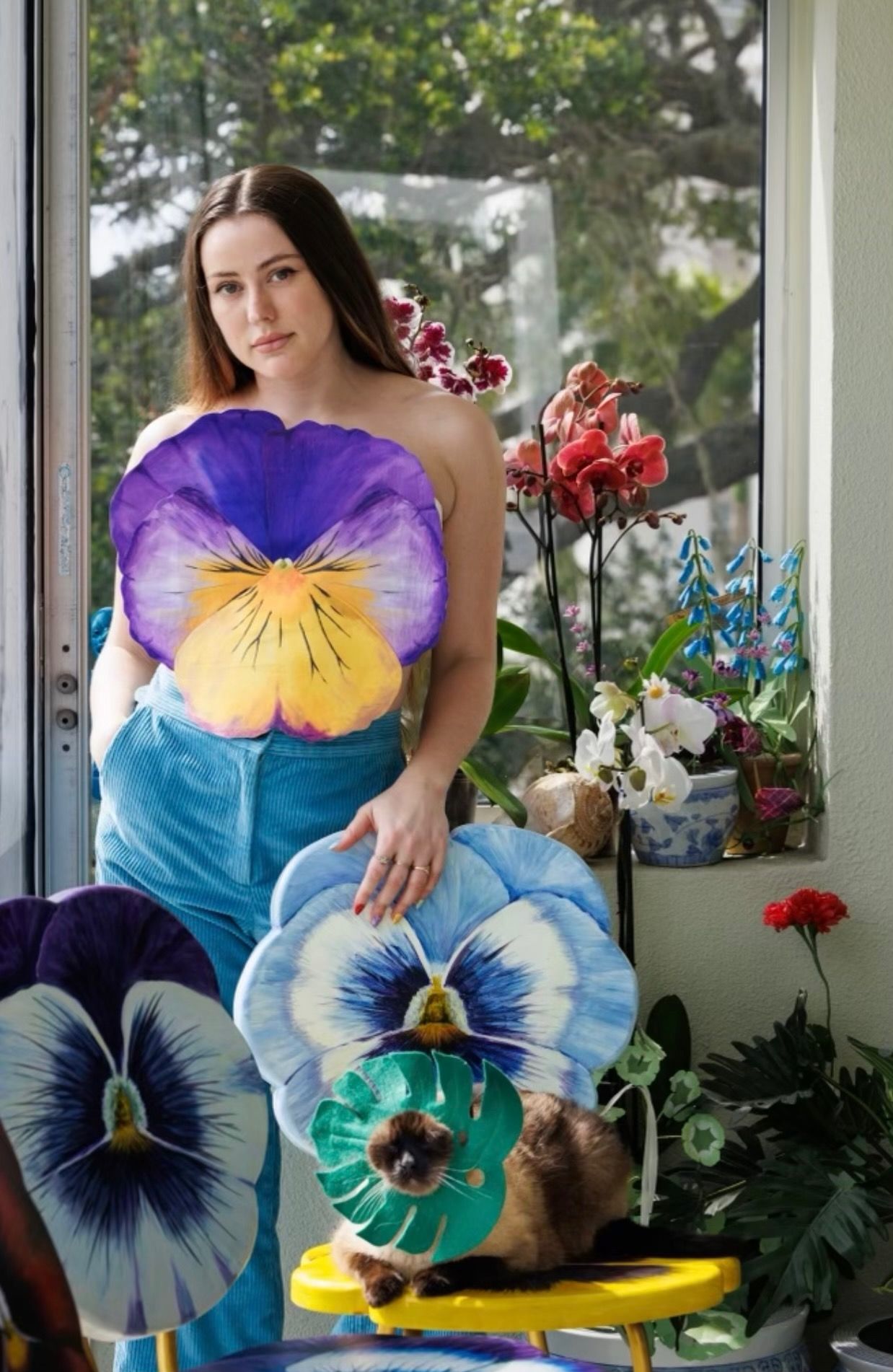
What is clear is that despite the sensationalism that surrounds her, the scammer identity she's owned and leant into, she's at her best when she's vulnerable, sensitive and open. My heart ached reading about the way others had seen her father, so different to the way he'd been with her; I felt her fear of the day a scandal would find her ("I just knew that a shipwrecked thing was hunting me"); I rooted for her when she wrote about how, if she was able to achieve her dreams, she 'might have a few minutes of happiness, someday, at some point'.
Her writing isn't good because it's scandalous or provocative. It's good because it's scrappy and bold and loud, just like her. She's 'spontaneous, chaotic' and 'believes the best in everyone'. She's (ironically, given her Instagram beginnings) unfiltered. She knows who she is, she knows what her life will be, like an actor with a script: she writes that 'Art history just seemed like the sort of subject the character of Caroline Calloway would major in'; aged 17, she made her father take her to the courthouse to change her surname from Gotschall to Calloway because she 'thought that Caroline Calloway would look better on the covers of books someday'. Some of the endpapers in Scammer are decorated with illustrations of Pinocchio, 'the most famous little liar of all time'. She is deeply self-aware of her image, and in Scammer, she wants to give this image a third dimension.
The whole time we're talking, and throughout Scammer, what's clear is that what she's really always wanted is just to be happy; she's 'naturally more prone to seek out beauty and fantasy'. She says:
I thought living these events would bring me happiness as I lived them... [but] I never felt happy while I was living any of it, I found it very stressful. It turns out all the living of the plot was nowhere near as enjoyable as I always hoped it would be, but the writing of the book was even better than I ever imagined.
She wants to see Brighton, Bristol, Cornwall... The Isle of Skye and the Isle of Man. She wants to be seen as the patron saint of Cambridge and chaotic good. Really, ultimately, she wants to be seen as the first and only Caroline Calloway. And I don't think that's a role anyone is going to be taking from her any time soon.
You can call what I’m doing in Florida exile or purgatory or fleeing or not being disciplined enough to party and write a book at the same time while living in New York. But I call this finally building a life around what matters to me most: Books and love. I call this growing up.

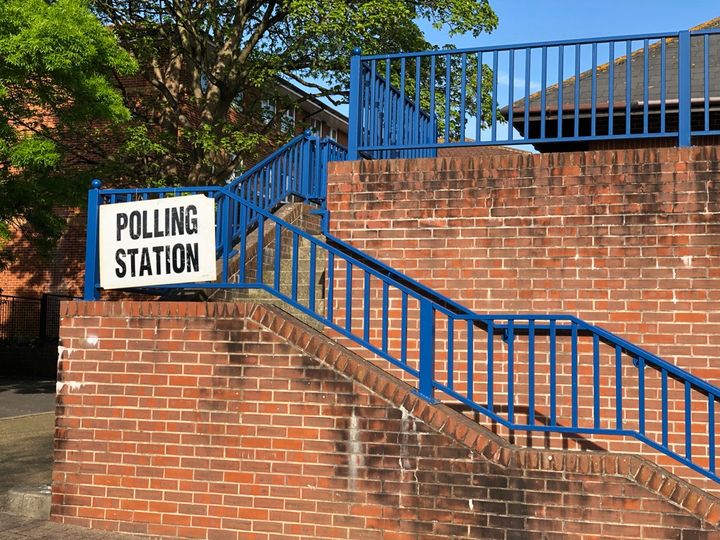
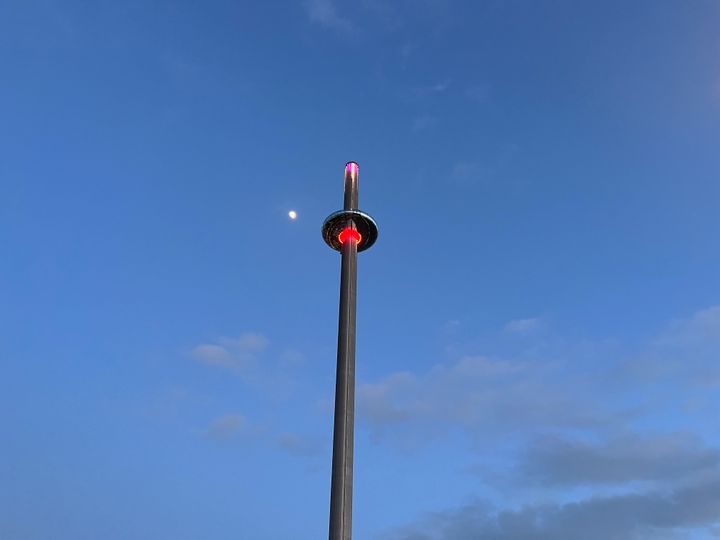
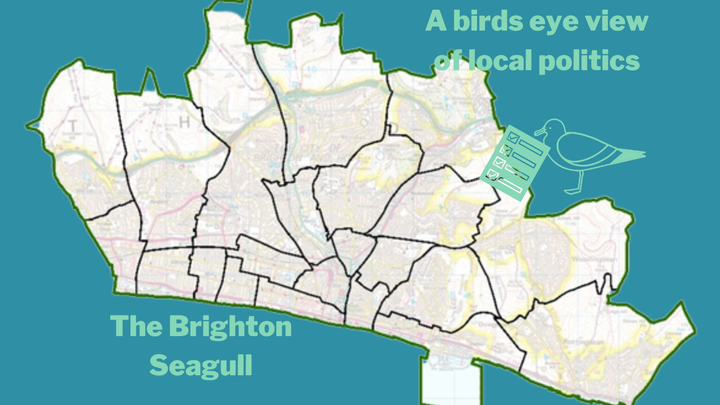
Comments ()